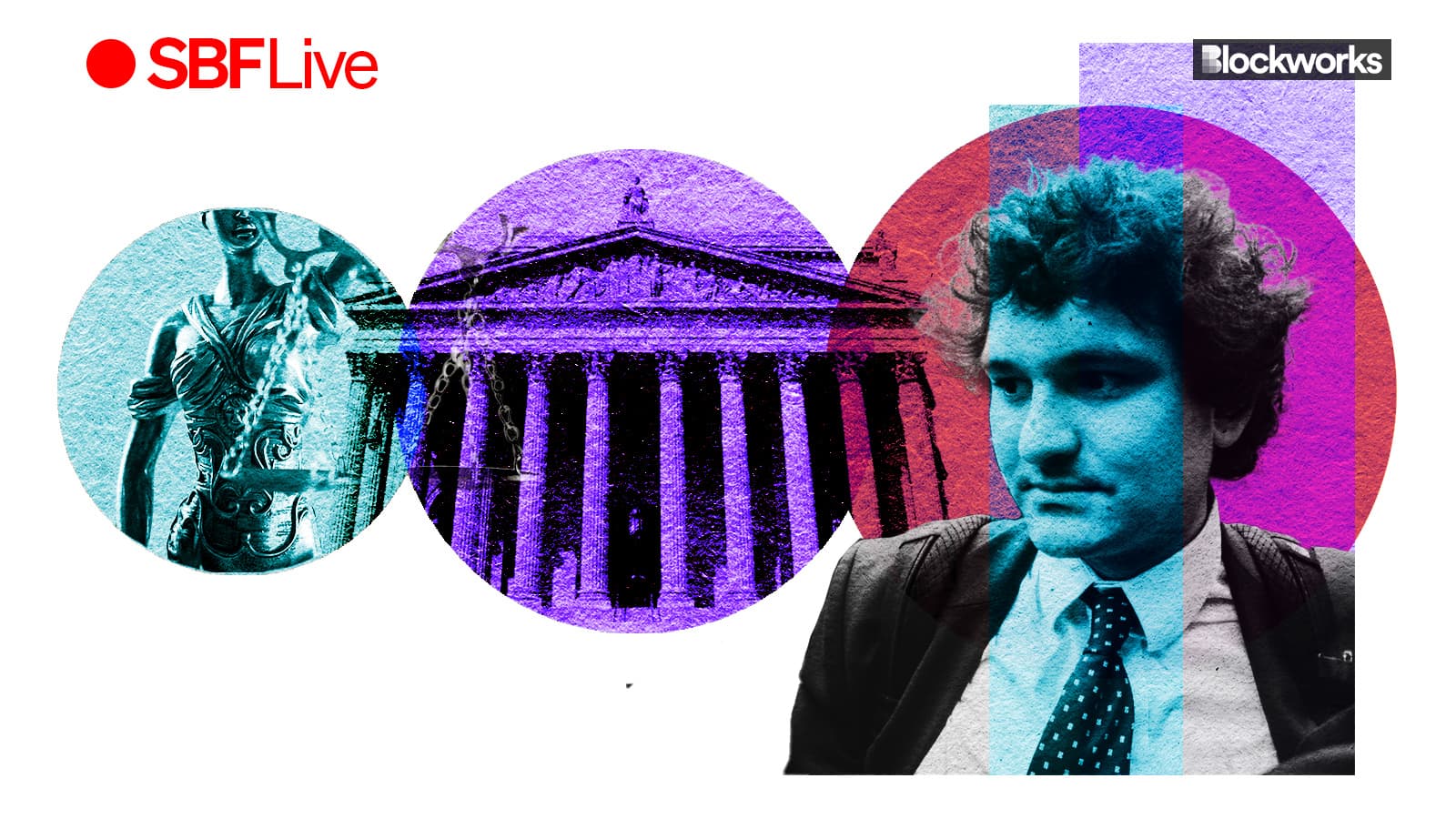The Sam Bankman-Fried testimony that never was
Yesterday’s trial run for parts of the defense’s case will never be heard by the jury — unfortunately, I was there to hear it all

Artwork by Crystal Le

After yesterday’s mock hearing, Judge Kaplan decided to only allow several parts of Bankman-Fried’s defense case to actually be heard by the jury.
This is great news for the jury’s ears.
While Bankman-Fried sounded poised and professional under direct questioning by his own lawyer, cross-examination yielded a veritable word salad. And a very high-level word salad for someone who claims to never read books:
For example, Bankman-Fried managed to use the word “contemporaneously” no less than six times. That would get him roughly 26 points in Scrabble.
Besides the fact that Bankman-Fried has clearly made use of a thesaurus in jail, the rest of his long-awaited first go at sitting behind the witness stand left all of us subject to yesterday’s trial run with a bad taste in our mouths. Bankman-Fried is famous for loving to talk to the media, but nothing about his answers to the hard questions yesterday were in any way quotable — or even coherent.
I took a rough count of how many times Bankman-Fried professed to have no knowledge of what the prosecutor was asking him on the stand. In about three hours of testimony, Bankman-Fried said “I don’t recall” thirty-four times, “I don’t know” thirty-three times, “I’m not aware” six times and “I’m not sure” a total of thirty-nine times.
What was Bankman-Fried so unaware of? The dates he had certain conversations, whether or not he saw certain documents, which lawyers he consulted with on certain matters and even the title of Alameda’s general counsel. It’s a lot to forget.
And Bankman-Fried’s peculiar way of speaking yesterday — what the judge kindly referred to as an “interesting way of responding to questions” — meant that he really didn’t answer almost a single question at all.
The most obvious instance was when the prosecution wanted to pin down whether or not Bankman-Fried was aware of the Alameda’s special privileges that allowed the firm to go negative (an allegation which had been pretty soundly proved, in my opinion, in previous testimony).
Bankman-Fried first needed to understand what it meant to go negative. Did the prosecutor mean negative in a “particular asset?” No, the prosecutor said, just whether Bankman-Fried knew that Alameda could have an “overall negative balance on FTX.”
That wasn’t clear enough for Bankman-Fried. Did the prosecutor mean a “negative balance, a negative net asset value, or […] a negative balance in a particular asset?”
The prosecutor reiterated: “An overall negative balance.”
Bankman-Fried responded: “You’re talking about negative in a particular coin or just have a negative net asset value?”
The prosecutor responded: “Just have a negative balance.”
This exchange encompassed 15 pages of testimony in the transcript, and ended with the prosecutor exasperatedly saying, “I am going to move on” — without Bankman-Fried ever answering the question.
Anyone in the courtroom again today can breathe a sigh of relief that they won’t have to listen to a repeat of whatever that was, as the judge has ruled that this particular section of yesterday’s testimony will not be heard in front of a jury.
But if the way that Bankman-Fried handled himself under cross-examination yesterday is any indication of how he will respond during his real testimony, I worry it will sorely test the jurors’ attention spans.
After all, it’s already been hard for them to stay awake.
I don’t care much about tech, I don’t care a whole lot about finance, either. I care about writing stories and watching weird things unfold. And that’s why I’ve ended up in crypto.
But because I’m missing that passion for what crypto and blockchain are all about — finance, tech, privacy, yadda yadda — I’m going to write instead about what I am actually interested in. Everything about crypto that has very little to do with crypto.
That’s what this column will be about. All the tangential stories that come out of the blockchain and crypto space, what I think about them, and how I navigate it all as a skeptical former Russian literature major.
It’s precisely my perch as an outsider that lets me do what I do: Opine on all sides of any crypto issue, no strings attached, no skin in the game.
If you want to talk crypto with me, let’s go off topic.






